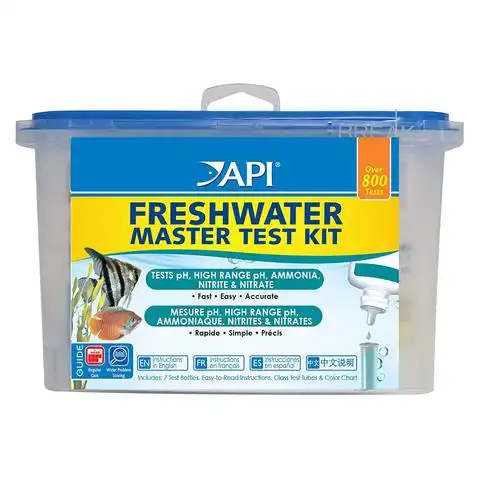Thank you for visiting! By the way… any links on this page that lead to products on Amazon and other stores/partners are affiliate links Aquarium Store Depot earns a commission if you make a purchase.
Once you find a dried-out fish in front of your aquarium, you will do anything you can to stop it from happening again. Unfortunately, this happens to most aquarium keepers at least once in their careers. If you’re lucky, you’ll be there to see your fish jump out. But most times, you won’t be able to find your fish swimming in the tank and will end your search on the floor instead.
Why do fish jump out of water? There are many reasons why fish jump. Some of these are preventable, while others are instinctual. Smaller fish that live towards the top layers of the water column is much more likely to jump out of the water than others, which is important to keep in mind when stocking the aquarium.
Key Takeaways
- It’s not every day you see a flying fish, and hopefully, you’ll never see a fish leaping out of your aquarium. This behavior can be an indicator that something is wrong in the aquarium.
- If your fish jump out of their aquarium, this can mean there is an imbalance in the system.
- There are many ways to prevent your fish from jumping out of the aquarium, though some species are naturally inclined to display this behavior.
Why Do Fish Jump Out Of Water?
If you had to search this question, then it’s likely too late for your fish. But it’s a great question to ask as a fish jumping out of water can indicate some major problems in the aquarium. This includes stress, bullying, and your fish being frightened by outside factors. At the same time, some species of fish are just natural jumpers, no matter how your tank is set up.
8 Reasons
1. Stress
Stress is the number one reason why fish jump out of the aquarium, mostly from water parameter issues. However, illness and maintenance stress can also have an effect.
2. Water Issues
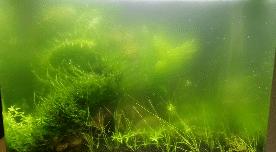
While we love the fish tank hobby, these conditions aren’t natural for fish. Many species migrate hundreds of miles in between the wet and dry months, sometimes even between freshwater and brackish conditions. We simply can’t recreate these changing environments in the aquarium though most species have adapted well to a more confined and stable space of living.
That being said, when conditions become inopportune, the fish will try to leave. This can result in the fish jumping out of the tank in hopes of finding a more favorable environment.
The leading cause of a jumping fish is poor water quality, namely due to ammonia, nitrite, nitrate, pH, or water temperature. If ammonia or nitrite levels are allowed to get too high, the water can become toxic; high nitrate levels can also become uncomfortable for fish over time. Swinging pH levels and water temperatures can also cause your fish to become unable to regulate its body, leaving only one way out.
3. Illness
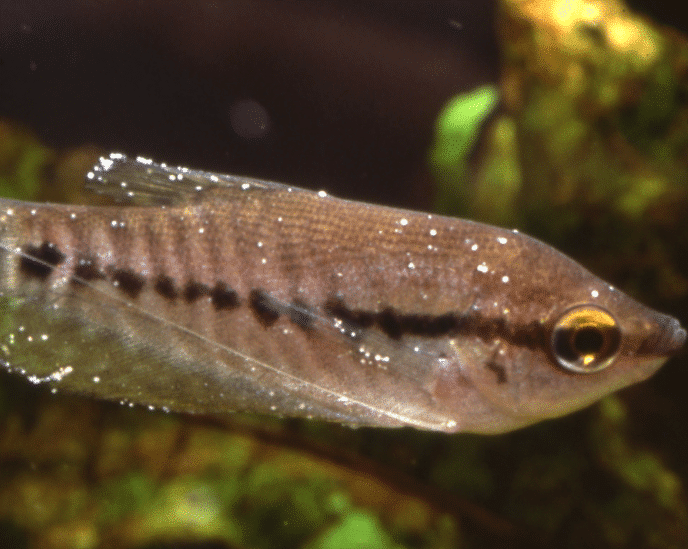
Stress from disease and illness is another common reason for fish jumping out of the aquarium. Many skin parasites cause fish to develop sores and lesions across their body which can be itchy and painful. In response, fish ‘flash’ or quickly twitch randomly, sometimes against objects in the aquarium. Unfortunately, this random motion can cause them to jump right out of the top of the fish tank.
Some diseases and illnesses also infect the gills. This can make it difficult for dissolved oxygen to be absorbed into the bloodstream, causing the fish to feel like it’s suffocating. In an attempt to find better conditions, the fish may jump out of the aquarium.
4. Maintenance Stress
Another reason fish jump out of the aquarium–through one you’re likely to catch in time–is due to maintenance stress. This includes times when your hands are in the tank, like when trimming plants or doing water changes. Luckily, fish will get used to your presence over time, especially if you follow a schedule. If you’re too quick with your motions though, fish might get scared and look for a quick escape route.
5. Bullying
Some aquarium fish jump out of the water to escape predators and other bigger fish. This is especially true if a schooling fish species is kept alone outside of a school.
It is natural for fish to chase each other every now and then, even fish of the same species. However, problems can occur when this chasing turns into harassment or bullying. If your fish doesn’t have a good defense mechanism, then it’s left to shelter in hiding places or escape the predator altogether by jumping across the water surface and out of the tank.
Not enough open space to swim. It is also possible for fish to jump out of their tank if space is limited. This usually happens in addition to bullying or poor water quality, but fish have been known to seek more space outside the confines of their tank. If your fish look cramped, then they probably are. Fix it before it’s too late!
6. They Get Scared
Why do fish jump out of the water when they’re scared? It seems counterintuitive.
Many fish kept in the aquarium hobby are not predators, meaning they are prey that are reactive to their surroundings; when danger is near, they swim away. There isn’t any way to ensure that your fish will never get scared, but there are ways to make them more comfortable within their environment.
- Keep schooling species in groups. The better majority of tropical fish species require being kept in small groups. In the wild, these groups are used as protection from predators, providing safety in numbers. The bigger the group, the safer and less reactive your fish will feel.
- Limit activity around the outside of the tank. Aquarium fish get used to their surroundings. Change isn’t often, so whenever something happens out of the ordinary, fish will react. This is especially true for stimuli outside of the tank which can appear as shadows and bright lights outside the aquarium.
- Use friendly lighting. Unfortunately, many aquarium lights, especially freshwater ones, do not provide a ramp-up/down setting. This is when the light slowly turns on or off in a set period of time, allowing for a more subtle awakening and less chance of a jumping fish.
7. Not Enough Food

In the wild, fish migrate depending on food availability and for spawning grounds. In a fish tank, food needs to be supplied to keep fish and invertebrates alive. Some aquarium keepers have had luck keeping some species alive in closed conditions, where fish and invertebrates rely on each other and plants as a source of food, but this is difficult to achieve.
Certain species, like Otocinclus, refuse common aquarium foods though and rely solely on the algae that naturally grows in the tank. While most fish will starve before they jump out of the tank, there is always the possibility that they try to venture into new areas for food.
8. Water Flow Is Too Strong
This isn’t likely to happen, but too much or overly strong water movement can push fish right out of the tank. Fish species that swim directly under the water’s surface are most prone to this as they get directly hit by filter and powerhead returns.
Plan ahead and coordinate where your fish like to swim with where water will circulate.
How To Prevent Jumping
If you’re reading this before you’ve had a fish jump out of your tank, then congrats! You’re one step ahead of making sure your fish live a safe, healthy, and happy life.
Luckily, it is pretty easy to make your aquarium safe for all fish. Here are a few ways to stop fish from jumping out of your tank.
1. Provide A Safe Environment
A good tank setup cannot be understated. Lots of thought goes into aquascaping, and for a good reason.
There are a few checkpoints you need to hit when setting up an aquarium. Inside the tank, you need to have a balance of available hiding spots and open swimming space. Fish need structure and shade to rest and to escape if they feel threatened by other fish. They also need plenty of open swimming space to stay enriched and to exercise.
You also need to create a safe environment on the outside of the tank. A fish tank should be kept in a relatively calm and quiet location without flashing lights or loud sounds.
2. Pick Compatible Tank Mates
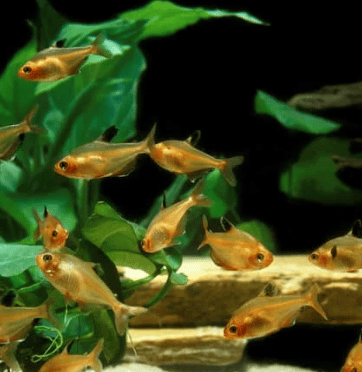
Picking compatible tank mates is important for long-term aquarium success. You do not want a predator/prey situation where fish get eaten, are stressed out, or end up jumping out of the aquarium. Try to keep community fish with other community species. Keep predatory and aggressive fish with other predators.
3. Get An Aquarium Lid
The easiest way to keep fish inside the tank is to get an aquarium lid. Over the past decade, aquarium lids have fallen out of favor due to their clunky appearance, advances in tank lighting, and a better understanding of gas exchange.
There are many benefits to using an aquarium lid, like lessening evaporation rates, increasing heating ability, and, most importantly, keeping fish inside the tank. For the most part, even if fish happen to jump and hit the lid, they can make a full recovery.
There are a few drawbacks to using an aquarium lid, though. Apart from their clunky appearance, aquarium lids can limit the type of lighting fixture that can be used on the tank. This becomes especially problematic for saltwater hobbyists that need strong overhead lights. To keep fish in the tank but also get the best lighting possible, many saltwater enthusiasts use fish-safe nets that keep most sized fish from escaping; nets need to be reinforced when keeping larger fish.
For freshwater fish, the higher-end lids are made of low-iron glass.
4. Set Your Lights On A Schedule
Consistency is key for freshwater and saltwater aquariums. Any change can throw your system off balance, which can take weeks or months to correct. One of the most understated parameters that should be regulated is lighting.
Lighting should be predictable for fish. This allows them to have a set sleep/wake cycle that keeps stress down. To help make this transition even smoother, a light with a programmed dimmer or an external dimmer can be used to ramp up and down into daylight or moonlight.
As previously mentioned, ambient lighting and sudden flashes of light outside the aquarium should be regulated.
5. Keep Water Quality High
The best way to keep your fish from jumping out of your aquarium is by keeping water quality stable. Keep in mind that having good water quality does not mean that your water parameters match ideal standards. Instead, water quality should be in the ranges that work best for your aquarium.
That being said, poor water quality, like high ammonia levels, should be addressed immediately to keep fish healthy. These levels can easily be checked with a reliable test kit.
Best Aquarium Test Kit For Freshwater
With all the essentials and accurate testing, this test kit is the best one to get you started
An aquarium heater should also be used to keep the water temperature stable.
6. Plan For A Larger Tank
We understand that a large tank is a big commitment. You need to pick the tank size that’s best for you. However, if you pick a small tank with the intention of upgrading in the near future, we suggest getting the big tank right from the start.
Current's Serene line offers a unique opportunity for Freshwater Aquarists. Comes with a filter, stand, light. You can even pick an aquascaping package!
There are many pros and cons to having both small and big tanks, but it’s better to understock a big tank than to overstock a small tank. If you do end up with a smaller tank, then make sure to stock accordingly. In general, saltwater fish species need much more space than their freshwater counterparts.
Known Freshwater Jumpers
Many freshwater fish live at the top of the water column. This is common behavior for fish that catch food directly on the surface of the water or insects that fly above. Some fish even venture out of the water to lay their eggs on nearby vegetation. Other species have a labyrinth organ that allows them to breathe atmospheric air in case water conditions deteriorate.
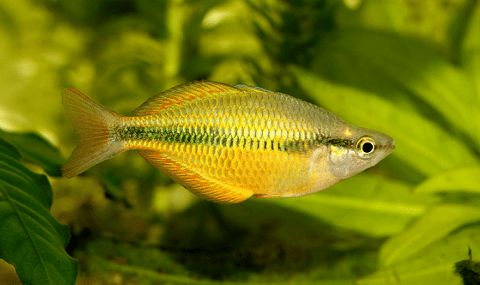
No matter the reason they’re at the surface of the water, these species are very capable to jump out of the aquarium. Some of these aquarium fish species include:
- White Cloud Minnows (Tanichthys albonubes)
- Rainbowfish (Melanotaeniidae family)
- Hatchetfish (Gasteropelecidae family)
- African Butterflyfish (Pantodon buchholzi)
- Freshwater Eels and Loaches
- Corydoras Catfish (Corydoras spp.)
- Betta Fish (Betta splendens)
- Silver Arowana (Osteoglossum bircurrhosum)
One of the most famous freshwater jumper fish outside of the aquarium hobby is the Asian carp (Cyprinus carpio), also known as the jumping carp. These fish have been known to jump into boats while hunting for zooplankton and other organisms on the water surface!
Known Saltwater Jumpers
Saltwater fish are less likely to be found leaping out of the water in saltwater ecosystems due to the depth of marine environments. However, estuaries and lagoons are home to many fish and insects that create diverse ecosystems loaded with food at the surface.
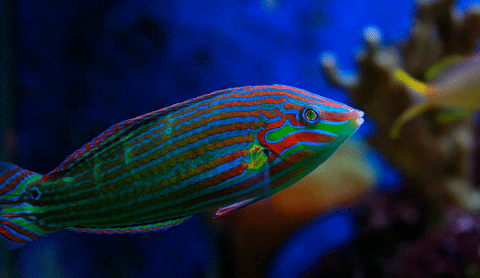
Many of the saltwater fish that leap out of the aquarium are timid, streamlined fish that don’t mean to leave the tank water. These fish include:
- Firefish (Nemateleotris magnifica)
- Triggerfish (Balistidae family)
- Rabbitfish (Siganidae family)
- Wrasses (Labridae family)
- Saltwater Eels
That being said, there are a few accomplished wild jumper species in the saltwater world that are utterly unique and powerful. This includes the flying fish (Exocoetidae family), which uses wings to glide above the surface of the water. Another fish you might not even consider to be a fish, the great white shark (Carcharodon carcharias) is a voracious predator that uses its large body to propel up and out of the water to attack prey1.
Obviously, you don’t need to worry about your great white escaping your tank, though!
Final Thoughts
Why do fish jump out of the water? For many reasons, some of the immediate concern and others not so much. Some fish, especially those that stay in the upper regions of the water column, have an instinctual behavior to jump. This could be in an attempt to catch food or lay eggs. In the aquarium, this could be a sign that something is wrong with the tank water or the aquarium setup.
Luckily, it is relatively easy to prevent fish from jumping out of the aquarium. Unfortunately, this is a lesson most hobbyists need to learn at least once.
- About the Author
- Latest Posts
I’m thrilled that you found Aquarium Store Depot! Here you’ll find information on fish, aquariums, and all things aquatics related. I’m a hobbyist (being doing this since I was 11) and here to help other hobbyists thrive with their aquariums! I adhere to a high quality Editorial Process and Review products with real life field usage and practical analysis.


